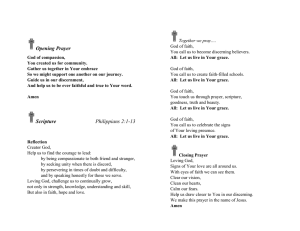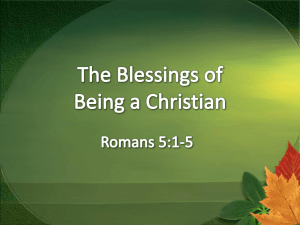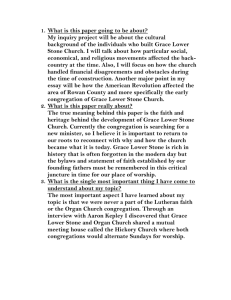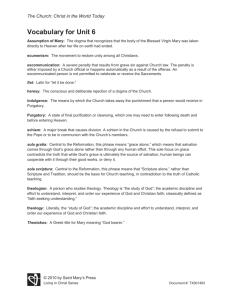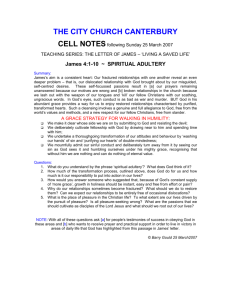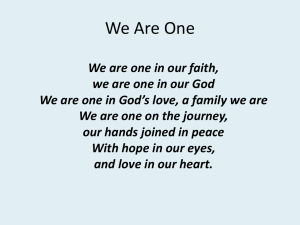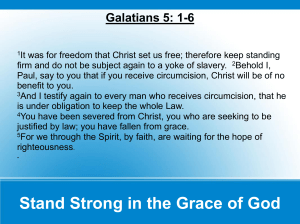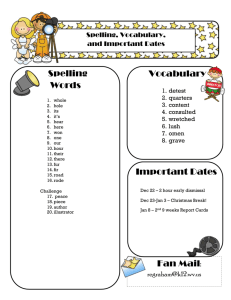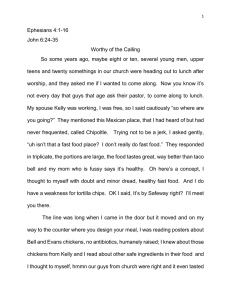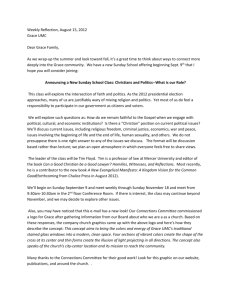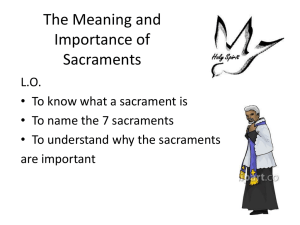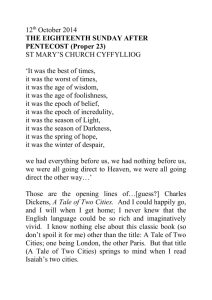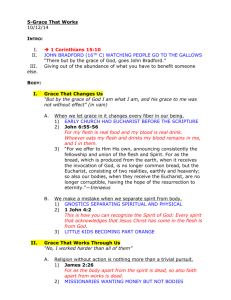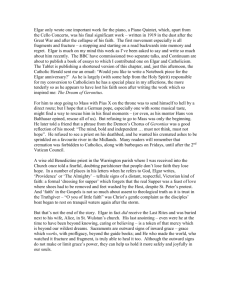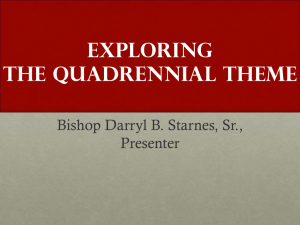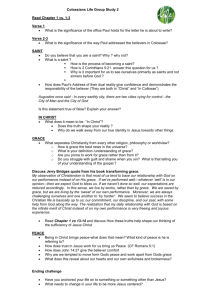Job Series: Brett Johnstone`s Sermon 25th October
advertisement
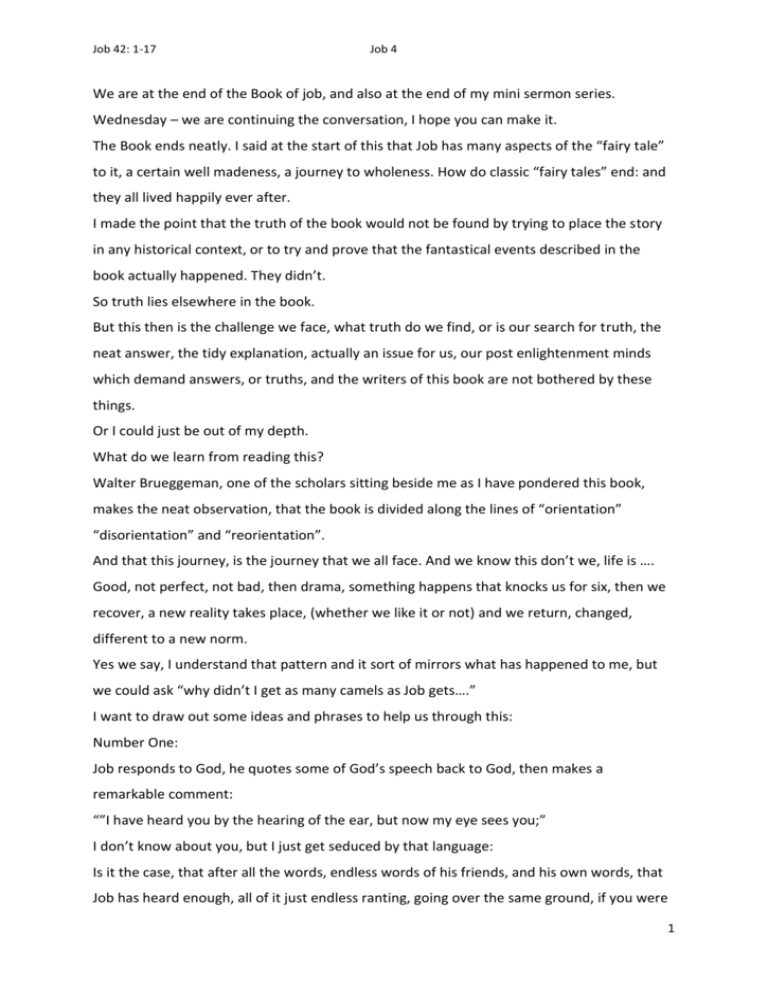
Job 42: 1-17 Job 4 We are at the end of the Book of job, and also at the end of my mini sermon series. Wednesday – we are continuing the conversation, I hope you can make it. The Book ends neatly. I said at the start of this that Job has many aspects of the “fairy tale” to it, a certain well madeness, a journey to wholeness. How do classic “fairy tales” end: and they all lived happily ever after. I made the point that the truth of the book would not be found by trying to place the story in any historical context, or to try and prove that the fantastical events described in the book actually happened. They didn’t. So truth lies elsewhere in the book. But this then is the challenge we face, what truth do we find, or is our search for truth, the neat answer, the tidy explanation, actually an issue for us, our post enlightenment minds which demand answers, or truths, and the writers of this book are not bothered by these things. Or I could just be out of my depth. What do we learn from reading this? Walter Brueggeman, one of the scholars sitting beside me as I have pondered this book, makes the neat observation, that the book is divided along the lines of “orientation” “disorientation” and “reorientation”. And that this journey, is the journey that we all face. And we know this don’t we, life is …. Good, not perfect, not bad, then drama, something happens that knocks us for six, then we recover, a new reality takes place, (whether we like it or not) and we return, changed, different to a new norm. Yes we say, I understand that pattern and it sort of mirrors what has happened to me, but we could ask “why didn’t I get as many camels as Job gets….” I want to draw out some ideas and phrases to help us through this: Number One: Job responds to God, he quotes some of God’s speech back to God, then makes a remarkable comment: “”I have heard you by the hearing of the ear, but now my eye sees you;” I don’t know about you, but I just get seduced by that language: Is it the case, that after all the words, endless words of his friends, and his own words, that Job has heard enough, all of it just endless ranting, going over the same ground, if you were 1 Job 42: 1-17 Job 4 good, God would reward you, if you have been punished, you must have sinned, and so on and so no. Enough. Words, eloquent and beautiful are in the end, words. Job in some mysterious way, now has seen God. Does his faith become in this moment, not some second hand thing, but his own. Does he enter into a new and more profound understanding of faith? As I speculated last week, does Job shed his child like faith and adopt a mature faith. I leave that with you. Because Job goes on to say: “therefore I despise myself and repent in dust and ashes.” My best explanation for this, is that if we read this in the context of the time in which it was written, yes we don’t know when it was written, just bear with me, this response by Job, is the only one possible for Job. Why, because God is the creator, Job is but a creature. What can we say in God’s defence? (God has been accused of being a bully, big guy, tough Guy etc.) Look at this language: “My wrath is kindled against you and your two friends for you have not spoken of me what is right, as my servant Job has” This is God speaking to the chaps who sat with Job, God is not happy with what they said, but likes what Job said. Is it that God liked the fact that Job repented? Or is it that God actually liked the Job who ranted, expressed his anguish, his fear, his terror to God, who at a gut level engaged with God, and didn’t just mouth the platitudes and conventional philosophy/theologyof the others. Job took God seriously. In the book Pride and Prejudice, Elizabeth Bennet, speculates as to why Darcy fell in love with her, he had plenty of other women to choose from, so why did he fall for her, a young women with no connections, no money: This is what she says: “The fact is you were sick of civility, or deference, off officious attention. You were disgusted with the women who were always speaking, and looking, and thinking for your approbation alone. I roused and interested you because I was so unlike them.” God liked Job because he had gumption, he had character, spark. 2 Job 42: 1-17 Job 4 I don’t know. Again it’s a possibility, I leave with you. So we come to the conundrum of the restoration. If, as I do, we take the central argument of the 4 friends as being false, that is that God does not punish sin, and also does not reward good, but rather is alongside us through good and bad, and that faith is about maturity and strength, tempered by grace and love, why does God appear, not appear, actually rewards Job, after he repents. Isn’t that an example of the bad theology that we have just been talking about? (is God not a very good theologian) God risks being called capricious. Gustave Gutierrez has this to say: “The world of retribution is not where God dwells, at most God visits it. The Lord is not prisoner of the “give to me and I will give to you” mentality. Nothing, no human work however valuable, merits grace, for if it did grace would cease to be grace. This is the heart of the message of the book of Job.” Maybe what happens at the end here is a for runner of the message of the New Testament, remember when I said that the book of Job is not historical, but a story with truth, Job then is everyman, everywoman, every person, grace then is available to us all, as is suffering, as is grief, as is joy. Like Job we will face it in our own ways, with complaint, or resignation, with dignity, or with tears, and God will be with us, and grace will be with us, and hope will rest with us. But I can’t easily say how or when. But we cannot tie it up, or package it, or earn it or presume to know it, and preaching on this is a most frustrating exercise, because longing to say one thing, we have say something else. Job was honest. Let us be as be honest as well. Amen. 3
